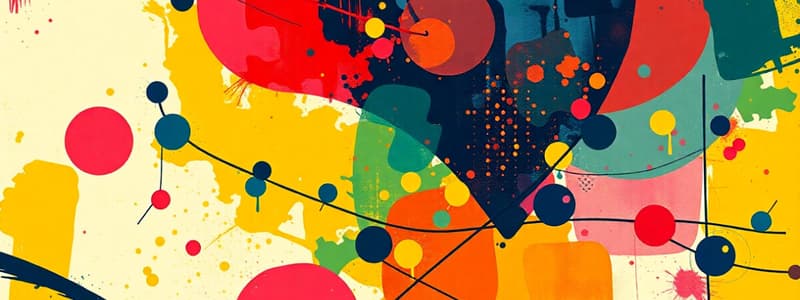Podcast
Questions and Answers
What is information literacy?
What is information literacy?
The ability to recognize when information is needed, and to locate, evaluate, and effectively communicate information in its various formats.
What is the first stage of information literacy?
What is the first stage of information literacy?
- Citing or searching for information
- Identifying/recognizing information needs (correct)
- Determining sources of information
- Using information in an ethical way
In the second stage of information literacy, what must you determine?
In the second stage of information literacy, what must you determine?
- The most ethical way to use information
- The topic of research
- Available sources of information (correct)
- How to communicate information
What is an important aspect of the third stage of information literacy?
What is an important aspect of the third stage of information literacy?
What does the fourth stage of information literacy require you to do?
What does the fourth stage of information literacy require you to do?
In the fifth stage of information literacy, what should you know how to do?
In the fifth stage of information literacy, what should you know how to do?
What is the goal of the sixth stage of information literacy?
What is the goal of the sixth stage of information literacy?
What should you be able to do in the seventh stage of information literacy?
What should you be able to do in the seventh stage of information literacy?
What famous world event happened on April 14, 1912?
What famous world event happened on April 14, 1912?
How did news of the Titanic sinking reach people in England and New York?
How did news of the Titanic sinking reach people in England and New York?
What are examples of traditional media?
What are examples of traditional media?
What does new media refer to?
What does new media refer to?
The __________ Age was characterized by the discovery of fire and the development of paper from plants.
The __________ Age was characterized by the discovery of fire and the development of paper from plants.
The __________ Age saw the harnessing of the power of steam and the development of machine tools.
The __________ Age saw the harnessing of the power of steam and the development of machine tools.
During the __________ Age, long distance communication became possible through electrical telegraphy.
During the __________ Age, long distance communication became possible through electrical telegraphy.
The __________ Age is known for the invention of personal computers and mobile devices.
The __________ Age is known for the invention of personal computers and mobile devices.
Flashcards are hidden until you start studying
Study Notes
Information Literacy
- Defined as the ability to recognize information needs, locate, evaluate, and effectively communicate information in various formats.
- Comprises individual competencies for ethical, efficient, and effective information use in all domains and professions.
Stages/Elements of Information Literacy
- Identifying/Recognizing Information Needs: Acknowledging a need or problem that requires information for resolution. Important first step in research.
- Determining Sources of Information: Assessing if needed information exists and identifying various sources, such as digital or print materials.
- Citing or Searching for Information: Finding required information and appropriately citing sources to avoid plagiarism.
- Analyzing and Evaluating Quality of Information: Understanding and assessing the accuracy and reliability of information gathered to discern relevance to the research topic.
- Organizing, Storing, or Archiving Information: Preserving and managing collected information for future use, as well as knowing how to properly dispose of unnecessary data.
- Using Information Ethically, Efficiently, and Effectively: Applying acquired information to solve problems or make decisions, while considering ethical and legal implications of usage.
- Creating and Communicating New Knowledge: Presenting information to others through appropriate formats, ensuring it is accessible and useful for a broad audience.
Evolution of Media
- Traditional Media: Includes TV, newspapers, radio, and magazines, historically vital for advertising and communication.
- New Media: Represents the shift to digital formats, incorporating online advertising, social media, and various digital content.
Timeline of Media Development
- Prehistoric Age (Before 1700s): Innovations like fire and the development of paper occurred, marking the early stages of information sharing.
- Industrial Age (1700s-1930s): Development of steam power and manufacturing revolutionized the production and dissemination of information.
- Electronic Age (1930-1980): Electricity usage led to advancements in long-distance communication, with the invention of the telegraph and early computers.
- New (Information) Age (1970-Present): Inventions of personal computers and mobile devices marked a significant evolution in how information is created and shared.
Titanic's Sank and Media Impact
- Notable event occurred April 14, 1912, with the Titanic sinking, leading to various responses in how news was disseminated.
- In 1912, news reached the public via traditional media; in today’s context, news would be shared through digital platforms and instant updates.
Studying That Suits You
Use AI to generate personalized quizzes and flashcards to suit your learning preferences.




